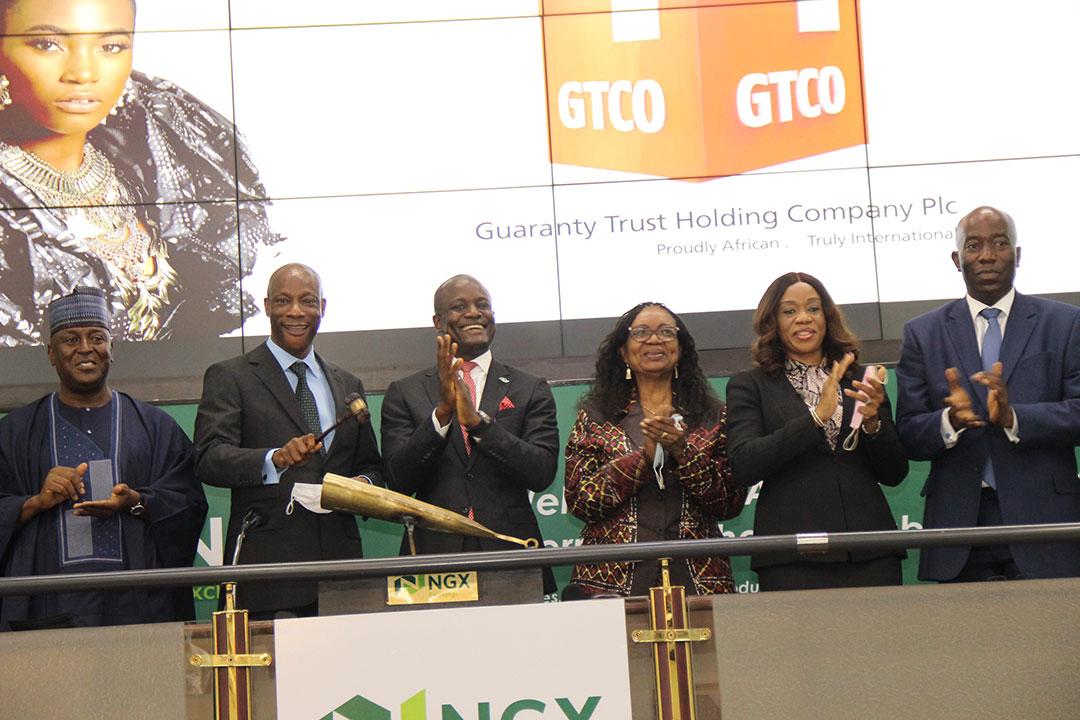- Banks Cut Lending, Opt for Investment in Securities
The loan books of Deposit Money Banks are shrinking by the day as lenders step up investments in securities and money market assets at the expense of lending.
Investigation by our correspondent revealed that the DMBs in the country, which before now were recording double-digit growth in their loan books year-on-year, were barely managing to hit nine per cent, with most banks recording around five per cent growth.
Top sources said the 18-month recession and weak growth recently witnessed by the country had affected the banking sector adversely, pointing out that most banks with high non-performing loans had reduced lending significantly.
They said unless the economic recovery became strong enough, banks might not be bullish in their lending activities in the coming months.
Economic and financial experts said with the recent exit of the country from recession, the DMBs were supposed to start growing their loan books.
They, however, expressed concern that most banks might not do so because the high yield currently on securities and money market instruments would discourage them from it.
“Banks are not willing to lend for now. They prefer to invest in Treasury bills, bonds and other securities and instruments, because their yields are high now. Imagine the 18 per cent on TBs! This is why most banks now prefer to buy TBs instead of lending,” the Managing Director, Cowry Assets Management Limited, Mr. Johnson Chuwku, said.
An analyst at Ecobank Nigeria, Mr. Kunle Ezun, said there was a need for the Central Bank of Nigeria to make conscious efforts to reduce the yields on TBs and other instruments in order to incentivise banks to lend to the real sector.
This, he said, would help to grow the economy because lending to the real sector was crucial to economic growth.
The post-recession recovery of commercial banks in the country is said to be in doubt because a number of economic issues are expected to impact on their performance in coming months.
The banking industry’s non-performing loan level had hit 15.07 per cent in June, far above the five per cent limit directed by the Central Bank of Nigeria.
In its latest report titled, ‘Nigerian banks: Survival of the fittest’, Renaissance Capital, an investment bank said, “We believe that the focus for the banks that have struggled in this environment is to clean up their loan books and strengthen their capital positions.
“In our view, the biggest risk to both the NPL clean-up process and capital is the currency, as most of the banks continue to use the official rate (N305/$) to market their foreign currency exposures.”
It added, “We acknowledge that current market valuations remain depressed for the tier-2 banks, although the year-to-date share price increase and the improved macro outlook should make these banks more willing to engage in discussions around a capital raise. This, in our view, will drag out the prospect of a RoE recovery.
“For the entire banking sector, we believe that there is a risk to NIMs in FY 18 given the scope for monetary policy easing. We expect that general business activity will also start to slow down in the 2H 18 ahead of the 2019 general elections. All of these factors could contribute to a delayed recovery for some of the banks.”


 Naira4 weeks ago
Naira4 weeks ago
 Billionaire Watch4 weeks ago
Billionaire Watch4 weeks ago



 Naira4 weeks ago
Naira4 weeks ago






 Naira4 weeks ago
Naira4 weeks ago


 Naira3 weeks ago
Naira3 weeks ago






 Naira3 weeks ago
Naira3 weeks ago
 Economy4 weeks ago
Economy4 weeks ago


 Naira3 weeks ago
Naira3 weeks ago





















